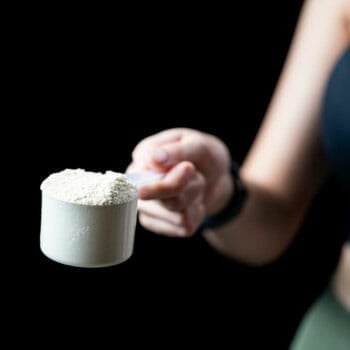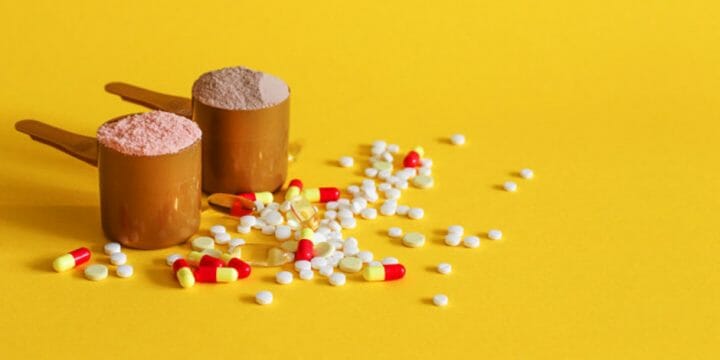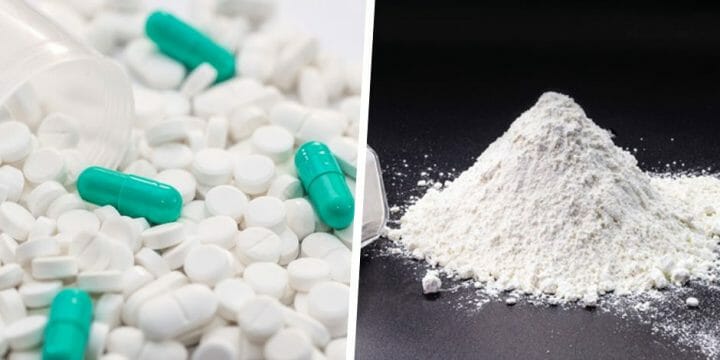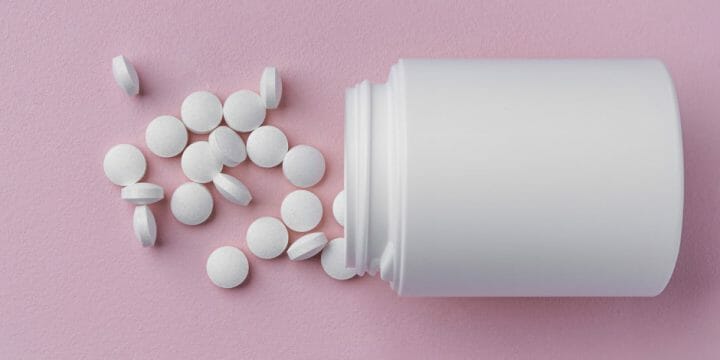Welcome to the ultimate showdown in the supplement world — glutamine vs. creatine.
As a seasoned MMA and Kickboxing champion, I've come to rely on the most effective tools for maintaining peak physical condition. Among them, creatine and glutamine stand out as the amino acids of choice, not just in the bodybuilding community, but for fighters like me who need to preserve muscle and optimize protein metabolism.
I've dedicated hours to sifting through research and understanding everything you need to know about them — from their core functions to their fitness benefits, and most crucially, whether it's safe and effective to stack them together.
Quick Summary
- The main difference between glutamine and creatine is their role in muscle growth: glutamine is directly involved in muscle protein synthesis, while creatine indirectly contributes to muscle growth through metabolism and fat loss.
- Glutamine is key for muscle preservation and immune function, while creatine enhances strength, power, and endurance in high-intensity workouts.
- A study by National Institute of Health (NIH) showed that glutamine users experienced a sixfold increase in muscle mass compared to non-users during high-intensity training.
- In my view, combining glutamine and creatine could offer a comprehensive approach to muscle building and recovery for athletes.
What Is Glutamine?

Glutamine or L-glutamine is one of the twenty amino acids we need to function correctly. It’s also one of the protein building blocks.
Proteins function to:
- Build muscles
- Help the immune system
- Transport substances to the blood
Furthermore, L-glutamine is the most abundant amino acid in the blood and is conditionally essential. The body may cease glutamine production during illness or stress. It's present in foods like meat and eggs, as well as supplements like protein powder.
Despite dietary sources, glutamine supplementation becomes necessary when the body requires more than it can produce, particularly during injuries or illnesses, making it a valuable recovery supplement.
What is Creatine?

Creatine is a chemical that the body makes from amino acids in the kidneys, pancreas, and liver. It’s stored in the skeletal muscle tissue and saved for later use. It is also found in food, such as red meat.
“Creatine monohydrate, the most extensively studied form of creatine, is considered the most effective supplement for athletes looking to increase lean body mass and as well as enhance muscular strength, power, and endurance.”
- Dr. Melina Jampolis, Physician Nutrition Specialist
In my experience, creatine is like a turbo boost for my muscles during resistance training. I've felt that surge of energy that helps me push through those last few reps. And while it's true that the energy burst is brief, it's often just enough to help me complete a set with maximum intensity.
This is why athletes use creatine supplementation. A study from the National Institute of Health (NIH) has shown that creatine supplements help muscles grow and provide more muscle strength [1].
If you avoid meat, you should consider taking vegan creatine supplements.
Differences Between Creatine and Glutamine

The main difference between glutamine and creatine is that glutamine compounds go directly into muscle protein synthesis, while creatine indirectly contributes to muscle growth by affecting metabolism and fat loss.
Creatine is synthesized in the liver and kidneys from amino acids.
While a regular person can get all the creatine they need from the body itself, people recovering from an illness, injury, or surgery may need additional creatine supplements.
Some athletes prefer glutamine because it’s directly involved in protein synthesis. We can get glutamine from dietary sources because it’s a conditionally essential amino acid.
Glutamine Benefits

- Muscle Gain - A study by NIH found that young adults who do high-intensity training and who used glutamine had six times more muscle mass than those who didn’t [2].
- Quicker muscle recovery - Glutamine increases glycogen storage and helps preserve muscle mass because it increases nitrogen availability during muscle breakdown.
- Better gut health - It helps keep the intestinal lining healthy by ensuring our body absorbs all nutrients it needs.
- Stronger immune system - Glutamine fuels lymphocytes, i.e., white blood cells, which fight infection and disease.
Creatine Benefits

Here are the specific benefits of creatine:
Energy Production - Creatine monohydrate supplements increase the stores of phosphocreatine in muscles. Phosphocreatine helps create ATP — the molecule you use for all basic life functions.
When you exercise, ATP breaks down and produces energy. The issue is that you use ATP faster than you can make it. This is where creatine supplements come in. They help athletes increase phosphocreatine and thus have more ATP.
Muscle Function - Apart from increasing the energy levels, creatine does other great things for muscles:
- It helps grow muscle mass
- Boosts proteins that help make new muscle fibers
- Increases muscle water content
- Decreases myostatin — a molecule that hinders muscle growth
High-Intensity Exercise Performance
I’ve talked about how creatine helps in ATP production. This also means it allows athletes and bodybuilders to have better high-intensity exercise.
Overall, creatine can improve:
- Strength
- Muscles endurance
- Muscle recovery
- Brain performance
Other creatine benefits:
- It lowers blood sugar levels
- It makes the immune system stronger
- It enhances growth hormone production
Impact on Hormonal Balance
Glutamine and creatine supplementation has gained notice for its potential influence on athletes' hormonal profiles, especially the stress hormone cortisol. Released during intense exercise, cortisol can potentially induce muscle breakdown and impede recovery.
A 2019 study by the National Institute of Health proposes that glutamine may help alleviate cortisol levels during strenuous training, aiding muscle preservation [3]. Conversely, creatine is believed to have a limited direct effect on cortisol but indirectly enhances exercise performance and reduces the overall stress response during training.
Can They Be Combined?

Yes, creatine and glutamine can be combined for benefits. This combo can serve as an excellent sports or post-workout nutrition drink, reducing muscle soreness, enhancing strength, and restoring energy stores faster after exercise.
Overall, this supplementation improves body composition and health. In my experience, and supported by research, there have been no significant side effects. Choosing products from the same company is advisable.
Combining with omega-3 fatty acids and BCAAs offers comprehensive support for athletes, reducing inflammation, enhancing recovery, and providing muscle protection. Together, they contribute to an optimized hormonal profile and overall athletic performance.
References:
- https://pubmed.ncbi.nlm.nih.gov/14636102/
- https://pubmed.ncbi.nlm.nih.gov/11822473
- https://www.ncbi.nlm.nih.gov/pmc/articles/PMC6520936/
About The Author
You May Also Like











